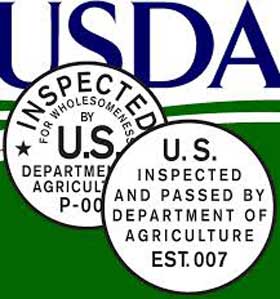An 8-year-old Massachusetts boy died within two weeks of eating a hamburger during an E. coli outbreak last summer that state and federal health authorities associated with grass-fed ground beef the family purchased from Whole Foods Market in South Weymouth, Mass. Two other people were sickened in the outbreak, which was first disclosed in a hamburger E. coli recall notice published by the USDA’s Food Safety and Inspection Service (FSIS). The recall also covered ground beef sold at Whole Foods Market in Newton, Mass.
 A Whole Foods ground beef E. coli lawsuit was filed by the boys’ parents. They have gone public with their concerns about food safety to prevent other families from having to endure a similar loss. They met in person with federal Secretary of Agriculture Tom Vilsack to discuss their concerns. Their food poisoning lawsuit in U.S. District Court was filed against Whole Foods and Rain Crow Ranch, the brand of ground beef they purchased.
A Whole Foods ground beef E. coli lawsuit was filed by the boys’ parents. They have gone public with their concerns about food safety to prevent other families from having to endure a similar loss. They met in person with federal Secretary of Agriculture Tom Vilsack to discuss their concerns. Their food poisoning lawsuit in U.S. District Court was filed against Whole Foods and Rain Crow Ranch, the brand of ground beef they purchased.
USDA said the two Whole Foods Market locations recalled 368 pounds of ground beef products that may be contaminated with E. coli O157:H7. The August 15 recall applied to meat produced on three days in June and it came almost two months after the outbreak investigation began. But FSIS officials said they and Whole Foods were concerned that some of the recalled products could still be in home freezers. The three case-patients in the outbreak were sickened in June.
“Working in conjunction with the Massachusetts Department of Public Health and the Centers for Disease Control and Prevention (CDC), FSIS determined that there is a link between ground beef purchased at Whole Foods Market and this illness cluster,” the agency said. The investigation included laboratory results that “provided linkages” between the three Massachusetts case patients and ground beef purchased from Whole Foods, according to FSIS.
Among the many strains of E coli bacteria that exist in our environment, O157:H7 is a primary cause of food poisoning, especially in ground beef. That’s because the organism harbors in the intestines of cattle and other ruminant animals and is shed in their manure. The odorless, microscopic pathogens can spread to meat in the slaughtering process and get mixed deep into resulting ground beef patties — where they can survive the cooking process if the hamburger isn’t thoroughly cooked to a temperature of 160 degrees.
What makes E. coli O157:H7 so dangerous is the Shiga toxin that it produces. The toxins create ulcers in the colon that can bleed, producing the bloody diarrhea that patients often experience when they have E. coli O157:H7 infections. Bloods cells fragmented by the E. coli can interfere with kidney function and cause a potentially fatal complication — especially in children — called hemolytic uremic syndrome (HUS) and thrombotic thrombocytopenic purpura (TTP) in adults.




